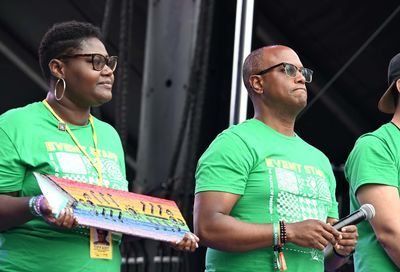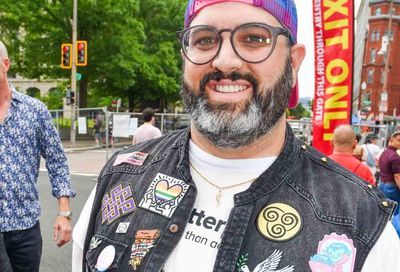Two-thirds of gay, bisexual Gen Z boys are out to their parents, study finds
Two-thirds of gay teenagers are out to their parents, according to a new study

A new study finds that a majority of gay and bisexual teenage boys have told their parents about their sexuality.
The study, published in the journal Psychology of Sexual Orientation and Gender Diversity, found that 66% of 13 to 18-year-old boys are out to their mothers, and 49% are out to their fathers.
Survey data came from 1,194 13-to-18-year-old boys that identified as gay, bisexual, or being attracted to people regardless of gender. The data was collected for an HIV prevention study conducted between January 2018 to January 2020.
The results represent a significant increase in coming out compared with prior generations. In the 1990s, only 40% of teenage boys were out to their mothers, with less than 30% out to their fathers.
David A. Moskowitz, Ph.D., lead author of the study and assistant professor of medical social sciences at Northwestern University’s Institute for Sexual and Gender Minority Health and Wellbeing, emphasized the boundaries that still exist based on different demographics.
Moskowitz said it was “encouraging” to see that “many teens, including those under 18 years old, are comfortable with their sexuality.”
“At the same time, we must be cautious, as the data also point to some of the same barriers and discrimination that previous generations have faced. Work still needs to be done,” Moskowitz added.
In particular, responses varied depending on participants’ race, religion, and sexual identity.
White participants were more inclined to come out to a parent than Black participants, nonreligious teens were more likely to come out than religious teens, and gay participants were out at a higher rate than bisexual participants.
Teens who were more accepting of their sexuality were also more likely to be out than those who hadn’t fully embraced their identity.
“This gives us an understanding of the factors that move teenagers to share this type of information with the people closest to them,” Moskowitz said. “We can now compare these practices with how other generations deal with these issues and think about what it all means for future generations.”
He noted the best next step would be researching coming out patterns among the young women of Gen Z.
“This study provides a roadmap for such an effort,” he said. “In the meantime, these findings should be helpful to those who work with teenagers identifying as sexual minorities.”
Read More:
New Jersey vice principal threw beer at child after rant about trans woman
TikTok accused of unfairly deleting content by trans creators
Support Metro Weekly’s Journalism
These are challenging times for news organizations. And yet it’s crucial we stay active and provide vital resources and information to both our local readers and the world. So won’t you please take a moment and consider supporting Metro Weekly with a membership? For as little as $5 a month, you can help ensure Metro Weekly magazine and MetroWeekly.com remain free, viable resources as we provide the best, most diverse, culturally-resonant LGBTQ coverage in both the D.C. region and around the world. Memberships come with exclusive perks and discounts, your own personal digital delivery of each week’s magazine (and an archive), access to our Member's Lounge when it launches this fall, and exclusive members-only items like Metro Weekly Membership Mugs and Tote Bags! Check out all our membership levels here and please join us today!


























You must be logged in to post a comment.